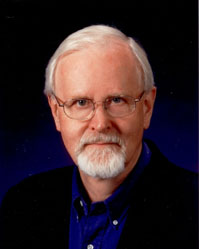
"The Global Food System and Related Policy Challenges" is the topic when World Food Prize Laureate Per Pinstrup-Andersen presents the Heuermann Lecture at 3:30 p.m. April 9 in the Hardin Hall auditorium.
Pinstrup-Andersen, World Food Prize Laureate in 2001, is the H.E. Babcock Professor of Food, Nutrition and Public Policy, the J. Thomas Clark Professor of Entrepreneurship and a professor of applied economics at Cornell University. He also is an adjunct professor of food economics at the University of Copenhagen.
"The global food system and related government policies are in disarray," Pinstrup-Andersen said, and a number of factors have created a sense of uncertainty and heightened political risks among many governments.
"These perceived political risks have pushed governments of many developing countries towards crisis management, short-term political interventions and bandage solutions."
Pinstrup-Andersen will discuss these interventions and suggest a set of policy challenges of a longer-term nature, as well as related policies to achieve sustainable food security for all.
"I'll argue that food price volatility will continue to be with us," he said, "but that real food prices need not increase."
The main bottlenecks in expanding food production in most low-income developing countries are found outside the farm, Pinstrup-Andersen said, adding there are specific areas on which government intervention in the food system should focus, such as improvements in rural infrastructure, domestic markets and policies, and more.
He spent 10 years as the International Food Policy Research Institute's Director General in Washington, D.C., and seven years as a department head. IFPRI is one of 15 centers supported by the Consultative Group on International Agricultural Research, an alliance of 64 governments, private foundations and international and regional organizations.
He also served seven years as an economist at the International Center for Tropical Agriculture in Colombia and six years as a distinguished professor at Wageningen University.
Among his 400 publications that include books, refereed journal articles, papers and book chapters, are these most recent books as author or editor: "Ethics, Hunger and Globalization"; "Agricultural Trade Liberalization and the Least Developed Countries"; "The African Food System and Its Interactions with Human Health and Nutrition"; and "Food Policy for Developing Countries: The Role of Government in Global, National, and Local Food Systems."
"From food price fluctuations to food riots, and from closed markets to scarcity and drought, when we talk about providing enough food for the world's population, policy is key to the goal of global food security," said Ronnie Green, University of Nebraska vice president and Harlan vice chancellor of the Institute of Agriculture and Natural Resources, home of the Heuermann Lectures.
"We are so pleased to have World Food Prize Laureate Per Pinstrup-Andersen share his expertise and insights as our next Heuermann Lecturer."
Heuermann Lectures are made possible by a gift from B. Keith and Norma Heuermann of Phillips. The lectures focus on providing and sustaining enough food, natural resources and renewable energy for the world's people, and on securing the sustainability of rural communities where the vital work of producing food and renewable energy occurs.
The lecture streams live at http://heuermannlectures.unl.edu and is archived at that site shortly after the lecture. Heuermann Lectures are broadcast on NET2 World at a later date.
— Judy Nelson, IANR